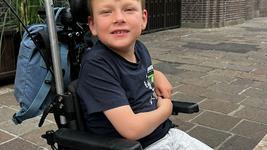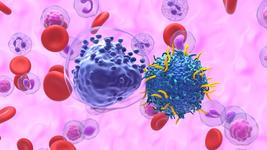CRISPR Screen Uncovers ARL11 as Key Determinant in PARP Inhibitor Resistance
CMN Intelligence - The World’s Most Comprehensive Intelligence Platform for CRISPR-Genomic Medicine and Gene-Editing Clinical Development
Providing market intelligence, data infrastructure, analytics, and reporting services for the global gene-editing sector. Read more...
Resistance to poly-(ADP)-ribose polymerase inhibitors (PARPi) presents a significant challenge in cancer treatment, despite their effectiveness against homologous recombination (HR)-deficient tumours. Now, Chinese researchers from Tsinghua University have utilised CRISPR gene activation technology to identify a previously unknown mechanism behind this resistance.
“ARL11 causes therapeutic resistance to PARPi treatment in BRCA1 wild-type breast cancer cells and presents a novel therapeutic target for developing cancer therapies”Zhang et al.
In a study published yesterday in Cancer Gene Therapy, the research team deployed a genome-wide CRISPR activation screen to identify genes that, when upregulated, confer resistance to olaparib in BRCA-wild-type breast cancer cells. The screen highlighted ARL11 (ADP-ribosylation factor-like GTPase 11) as a top candidate.
Through validation experiments, the researchers demonstrated that ARL11 overexpression significantly reduced cancer cell sensitivity to multiple PARPi drugs and other DNA-damaging agents both in vitro and in vivo. This protective effect operates through two complementary mechanisms: ARL11 interacts with STING to enhance innate immune responses, creating a positive feedback loop with type I interferon production; and it facilitates homologous recombination DNA repair by interacting with the RUVBL1/2 complex.
"ARL11 causes therapeutic resistance to PARPi treatment in BRCA1 wild-type breast cancer cells and presents a novel therapeutic target for developing cancer therapies," explain senior author Hanqiu Zheng and his team at Tsinghua University states in the original article.
Clinical relevance was established through TCGA database analysis showing that ARL11 expression is significantly elevated in breast cancer patients compared to healthy controls, with higher expression correlating with poorer prognosis. Notably, simultaneously targeting RUVBL1/2 with a specific inhibitor potentiated the effects of PARPi therapy, suggesting a promising strategy to overcome resistance.
The research was led by Hanqiu Zheng from Tsinghua University in Beijing with Tengjiang Zhang and Yuan Zhang as joint first authors. The study was published yesterday in Cancer Gene Therapy.
To get more CRISPR Medicine News delivered to your inbox, sign up to the free weekly CMN Newsletter here.
Tags
CLINICAL TRIALS
Sponsors:
Base Therapeutics (Shanghai) Co., Ltd.
Sponsors:
Base Therapeutics (Shanghai) Co., Ltd.







